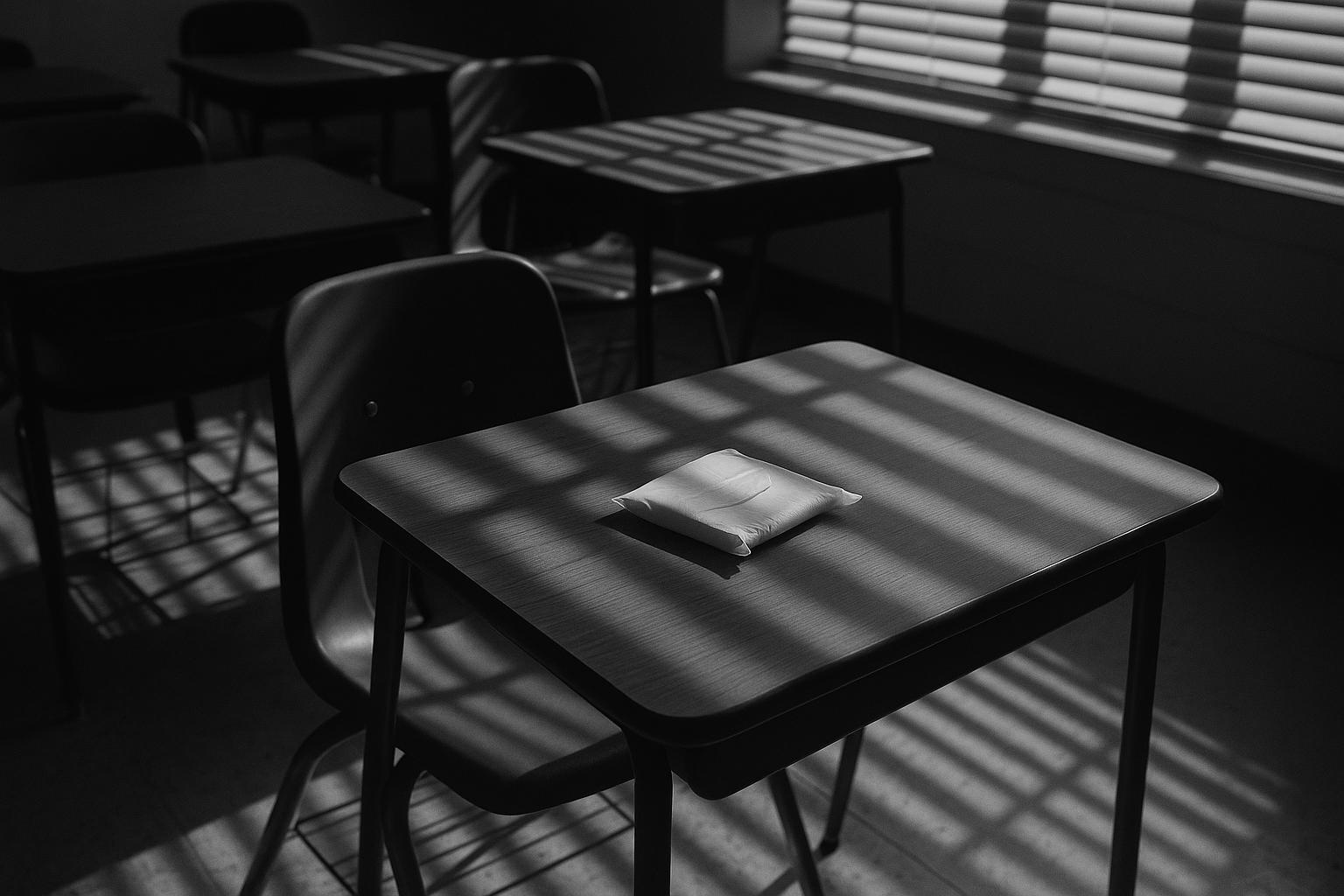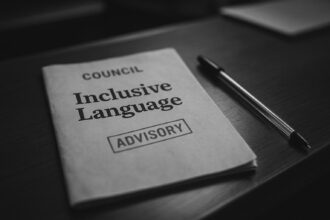A UCL study finds many young people receive only one lesson about periods in primary and one in secondary school. As new statutory RSHE guidance expands curriculum content and resources, experts urge mixed‑sex inclusion and practical support to tackle stigma and wider menstrual health needs before the 2026 implementation.
In a study highlighted by the Irish News, University College London researchers say that schooling on menstruation remains woefully thin for many pupils. The team found that, across a typical school career, young people may receive as little as two dedicated lessons on periods—one in primary and one in secondary school. Professor Joyce Harper of the UCL Institute for Women’s Health argues that while educating about menstruation is now a statutory expectation in England and Wales, it still amounts to far too little for most students. “Educating pupils about periods may now be compulsory in schools in England and Wales, but we know that for many of them that still only amounts to two lessons in their entire school career,” she said. The researchers also contend that boys should be included in these sessions, noting that mixed-sex classes can help pupils understand the experiences of friends and future partners, even as some schools prefer single-sex formats to foster openness.
Beyond the two-lesson reality, the study highlights the stigma surrounding menstruation and a broader knowledge gap that can deter people from seeking help. Co-author Caroline Musulin, also from the UCL Institute for Women’s Health, described how many women endure menstrual problems longer than they should because they cannot speak openly about uncertainties or fear being dismissed by healthcare professionals. The authors’ findings come as the government’s RSHE framework for schools continues to be rolled out. New guidance published in recent weeks reiterates that pupils should learn about menstruation as part of both primary and secondary education, and that the curriculum should address menstrual and gynecological health, including conditions such as endometriosis and polycystic ovary syndrome, as well as menopause. The Department for Education emphasises that RSHE lessons should enable respectful communication and consideration of experiences different from one’s own, with schools supported by new resources to run high-quality lessons. The Education department says that all teaching on these topics should be age-appropriate and that schools will eventually operate under stricter, more comprehensive guidelines from next year.
The Guardian’s August 2025 review of the same UCL study reinforces the sense that the current provision is far from consistent. It notes the study’s finding that many pupils experience only two periods-related lessons in their entire schooling, with instruction often focused on biology rather than wellbeing or broader health implications. The article also underscores the government’s position that menstruation content is already a mandated element of RSHE and health education, and that renewed guidance aims to widen and deepen the curriculum accordingly. In short, while policy signals from Westminster are steering schools toward a more thorough, multi-faceted approach, there is ongoing debate about how best to integrate these topics across mixed- and single-sex teaching, and how to balance curriculum time with other statutory requirements.
In parallel, the government has formalised its stance on RSHE and health education through updated guidance released in July 2025. The official guidance sets out that all schools must align with comprehensive RSHE content across primary and secondary phases, with a staged approach that enables schools to prepare ahead of the 1 September 2026 enactment date. Ministers emphasised the need for parental involvement, safeguarding, and clear delivery of online safety, wellbeing, gender equality, and mental health within RSHE. The reform package is described as a cross-government effort designed to address modern safeguarding challenges and to reflect digital-age realities, including online safety and gender-based issues. The reforms are intended to apply to England, with other UK nations following similar trajectories. Parliament’s debate on the matter in mid-July 2025 framed these changes as a long-awaited, system-wide update that schools can begin planning for now, even as they work toward the 2026 implementation window.
As these reforms unfold, education professionals and unions have welcomed the direction while calling for practical supports. NAHT’s Sarah Hannafin said that teaching about periods remains a vital part of health education for all pupils, and that schools should plan for both mixed-sex and single-sex sessions to ensure students understand others’ experiences. The Association of School and College Leaders’ Pepe Di’Iasio echoed the call for a comprehensive approach that goes beyond biology to address wellbeing and broader social impacts. The Department for Education says the new RSHE curriculum will be backed by resources to tackle stigma, support each child’s development, and help teachers deliver sensitive, high-quality lessons.
As the country moves toward what ministers describe as a more holistic, inclusive approach to menstruation education, schools now face a delicate balancing act: implement a more comprehensive, mixed- or multi-format curriculum, while ensuring timing and resources align with broader RSHE and health-education requirements. The debate over how best to normalise conversations about menstruation—without compromising safeguarding, inclusivity, and age-appropriate delivery—remains central to how this policy translates from guidance to classroom practice.
 Reference Map:
Reference Map:
Source Panel
- Boys and girls should be taught about periods together in school academics say (Irish News)
- Teaching boys and girls mixed classes menstruation period UCL study (The Guardian)
- Relationships education, relationships and sex education (RSHE) and health education (GOV.UK)
- Relationships education in primary (GOV.UK)
- Teaching about relationships, sex and health (GOV.UK)
- RelationshipsSexAndHealthEducationGuidance (Hansard, 16 July 2025)
- Relationships and Sex Education in schools: what’s changing? (Commons Library)
Source: Noah Wire Services
- https://www.irishnews.com/news/uk/boys-and-girls-should-be-taught-about-periods-together-in-school-academics-say-D7AEVOJVQRPS7O3UQ4RVJXZOOU/ – Please view link – unable to able to access data
- https://www.theguardian.com/education/2025/aug/20/teaching-boys-and-girls-mixed-classes-menstruation-periods-ucl-study – An August 2025 Guardian article reports UCL researchers arguing that menstrual education in England and Wales should be taught in mixed-sex classes to reduce stigma and misinformation. The study surveyed 55 women and found many pupils have only two lessons on periods across their school career, one in primary and one in secondary, with teaching focusing mainly on biology. The researchers advocate a broader curriculum addressing wellbeing, bleeding, and menstrual health, plus implications such as menopause. They note mixed sessions could help boys understand peers’ experiences and support partners, while government guidance already mandates menstruation content by primary and secondary.
- https://www.gov.uk/government/publications/relationships-education-relationships-and-sex-education-rse-and-health-education – The GOV.UK page ‘Relationships and Sex Education and Health Education’ provides the official statutory guidance for England’s RSHE and Health Education. The guidance was revised in July 2025, setting out updated requirements intended to come into force on 1 September 2026. It specifies that all schools must align their curricula with RSHE content, covering primary and secondary strands, including online safety, wellbeing, and gender-based issues. It emphasises engaging parents, age-appropriate delivery, and safeguarding. The guidance also reiterates that schools should plan curricula in a way that is suitable for pupils’ ages, with phased implementation and ongoing professional development for staff.
- https://www.gov.uk/government/publications/relationships-education-relationships-and-sex-education-rse-and-health-education/relationships-education-primary – Relationships education in primary schools forms part of England’s statutory guidance, stating that primary pupils should learn about healthy relationships, boundaries, online safety, and the concept of family diversity. The page outlines by the end of primary, students will understand topics such as friendship, privacy, consent development, and positive behaviours. It emphasises parental involvement and consultation on curriculum content, with schools asked to publish policies. Although sex education is not compulsory in primary, the guidance encourages age-appropriate discussion linked to puberty and the science curriculum. The document also stresses safeguarding and inclusion for pupils with SEND in all school contexts.
- https://www.gov.uk/guidance/teaching-about-relationships-sex-and-health – This GOV.UK guidance outlines practical support and training materials for schools implementing relationships, sex and health education (RSHE). Published in September 2020 and updated in 2021, it directs schools to develop curricula, engage parents, and train teachers through modular materials. The primary training includes topics such as changing adolescent bodies, online relationships, mental wellbeing, and healthy friendships. The guidance underscores age-appropriate content, safeguarding, and SEND considerations. It also provides links to further resources and policy expectations, including planning templates and policy development, to ensure consistent delivery of RSHE across primary and secondary settings, for pupils’ safety and learning outcomes nationwide.
- https://hansard.parliament.uk/Commons/2025-07-16/debates/25071645000013/RelationshipsSexAndHealthEducationGuidance – UK Parliament Hansard reports the 16 July 2025 debate on updated RSHE guidance. Ministers announce comprehensive revisions to the Relationships, Sex and Health Education guidance to address modern safeguarding challenges, digital age issues, and violence against women and girls. The new framework is promised to take effect from September 2026, with schools encouraged to begin adapting now. The debate highlights requirements to involve parents, avoid gender stereotypes, include mental health and suicide prevention, and expand content on online safety, gender, and sexuality. The government stresses cross-government collaboration and that the reforms apply to England, with other nations following their trajectories.
- https://www CommonsLibrary.parliament.uk/relationships-and-sex-education-in-schools-whats-changing/ – The Commons Library briefing ‘Relationships and Sex Education in schools: what’s changing?’ outlines the history and current state of RSHE in England following the 2017 Act. It explains that primary schools must teach Relationships Education, and secondary schools must teach Relationships and Sex Education, while sex education remains optional in primary. The briefing notes the 2019 draft guidance and the move to include health education, with implementation phased during the 2020 school year. It discusses policy evolution, expectations for school policies, parental involvement, and inspectorate scrutiny, and provides context for ongoing reforms and parliamentary oversight across the UK education system.
Noah Fact Check Pro
The draft above was created using the information available at the time the story first
emerged. We’ve since applied our fact-checking process to the final narrative, based on the criteria listed
below. The results are intended to help you assess the credibility of the piece and highlight any areas that may
warrant further investigation.
Freshness check
Score:
8
Notes:
 Fresh: the narrative is current and traces to a UCL study published 19 August 2025 (journal entry and UCL/EurekAlert press release) — earliest known publication date: 19 Aug 2025 (UCL / Women’s Health).
Fresh: the narrative is current and traces to a UCL study published 19 August 2025 (journal entry and UCL/EurekAlert press release) — earliest known publication date: 19 Aug 2025 (UCL / Women’s Health).  The Irish News piece (20 Aug 2025) is a same-week report republishing the study findings. Multiple reputable outlets ran the story on 19–20 Aug 2025 (UCL/EurekAlert, Phys.org, The Guardian, Tes, Irish News, etc.), so this is not old news.
The Irish News piece (20 Aug 2025) is a same-week report republishing the study findings. Multiple reputable outlets ran the story on 19–20 Aug 2025 (UCL/EurekAlert, Phys.org, The Guardian, Tes, Irish News, etc.), so this is not old news.  This is largely a press-release-driven news cycle: much text, quotes and figures are lifted from the UCL release and the journal abstract. That usually increases temporal relevance (high freshness) but reduces originality — flag as recycled/PR-originated content rather than independent investigative reporting.
This is largely a press-release-driven news cycle: much text, quotes and figures are lifted from the UCL release and the journal abstract. That usually increases temporal relevance (high freshness) but reduces originality — flag as recycled/PR-originated content rather than independent investigative reporting.  No substantially similar narrative was published more than 7 days earlier than 19 Aug 2025.
No substantially similar narrative was published more than 7 days earlier than 19 Aug 2025.
Quotes check
Score:
3
Notes:
 Most direct quotations (Prof Joyce Harper; Caroline Musulin; Dr Natania Yeshitila) first appear in UCL’s release / EurekAlert on 19 Aug 2025 and are reproduced verbatim across later coverage (Irish News, Guardian, Tes, Phys.org, News-Medical).
Most direct quotations (Prof Joyce Harper; Caroline Musulin; Dr Natania Yeshitila) first appear in UCL’s release / EurekAlert on 19 Aug 2025 and are reproduced verbatim across later coverage (Irish News, Guardian, Tes, Phys.org, News-Medical).  Earliest identifiable online usage for the quoted lines: 19 Aug 2025 (UCL / EurekAlert / journal abstract).
Earliest identifiable online usage for the quoted lines: 19 Aug 2025 (UCL / EurekAlert / journal abstract).  If the Irish News piece contains the same wording, those quotes are reused from the institutional release (not exclusive reporting).
If the Irish News piece contains the same wording, those quotes are reused from the institutional release (not exclusive reporting).  No evidence of earlier, independent attribution for those quotes; variations across outlets are minor (punctuation/summary differences) — flag as reused press-release material rather than newly obtained interview content.
No evidence of earlier, independent attribution for those quotes; variations across outlets are minor (punctuation/summary differences) — flag as reused press-release material rather than newly obtained interview content.
Source reliability
Score:
8
Notes:
 Strengths: the narrative originates from University College London (UCL) and a peer‑reviewed article in Women’s Health (DOI: 10.1177/17455057251362992, published 19 Aug 2025), and references official UK government RSHE guidance (DfE revised guidance published 15 July 2025). These are verifiable, reputable institutional sources.
Strengths: the narrative originates from University College London (UCL) and a peer‑reviewed article in Women’s Health (DOI: 10.1177/17455057251362992, published 19 Aug 2025), and references official UK government RSHE guidance (DfE revised guidance published 15 July 2025). These are verifiable, reputable institutional sources.  Caveats: the research is qualitative and small (55 women across focus groups) — authors and outlets note limitations (sampling bias via social media; cisgender-only sample).
Caveats: the research is qualitative and small (55 women across focus groups) — authors and outlets note limitations (sampling bias via social media; cisgender-only sample).  Syndication: many outlets reproduced the press release text; where reporting simply reprints PR language, that reduces independent verification of claims. No evidence that named organisations or speakers are fabricated — all named individuals and organisations are publicly verifiable.
Syndication: many outlets reproduced the press release text; where reporting simply reprints PR language, that reduces independent verification of claims. No evidence that named organisations or speakers are fabricated — all named individuals and organisations are publicly verifiable.
Plausability check
Score:
7
Notes:
 Plausible: the central claims line up with the published study (19 Aug 2025) and with the revised RSHE guidance timeline (DfE guidance published 15 July 2025; implementation from 1 Sept 2026).
Plausible: the central claims line up with the published study (19 Aug 2025) and with the revised RSHE guidance timeline (DfE guidance published 15 July 2025; implementation from 1 Sept 2026).  Limitations that lower generalisability: the study is qualitative (55 participants) and not nationally representative — using participant recall to claim “many pupils receive just two lessons” is plausible as lived experience but should not be read as a precise national statistic without larger, representative data.
Limitations that lower generalisability: the study is qualitative (55 participants) and not nationally representative — using participant recall to claim “many pupils receive just two lessons” is plausible as lived experience but should not be read as a precise national statistic without larger, representative data.  The narrative is covered widely in reputable British media (Guardian, Tes, Irish News) which supports plausibility, but readers should be warned about over‑generalisation from limited qualitative evidence.
The narrative is covered widely in reputable British media (Guardian, Tes, Irish News) which supports plausibility, but readers should be warned about over‑generalisation from limited qualitative evidence.  Language/tone: reporting is consistent with UK media style; no obvious regional/linguistic mismatch. Potential distraction: emphasis on mixed vs single‑sex teaching may simplify broader pedagogic debates — flag as an area needing further evidence and implementation detail.
Language/tone: reporting is consistent with UK media style; no obvious regional/linguistic mismatch. Potential distraction: emphasis on mixed vs single‑sex teaching may simplify broader pedagogic debates — flag as an area needing further evidence and implementation detail.
Overall assessment
Verdict (FAIL, OPEN, PASS): PASS
Confidence (LOW, MEDIUM, HIGH): HIGH
Summary:
 PASS — HIGH confidence. The Irish News narrative accurately reports findings that originate with a UCL peer‑reviewed study published 19 August 2025 and an accompanying UCL/EurekAlert press release (
PASS — HIGH confidence. The Irish News narrative accurately reports findings that originate with a UCL peer‑reviewed study published 19 August 2025 and an accompanying UCL/EurekAlert press release ( earliest publication: 19 Aug 2025). Major strengths: the research and the policy context (DfE revised RSHE guidance published 15 July 2025; implementation 1 Sept 2026) are verifiable and reported by multiple reputable outlets (The Guardian, Tes, Phys.org, News‑Medical, etc.).
earliest publication: 19 Aug 2025). Major strengths: the research and the policy context (DfE revised RSHE guidance published 15 July 2025; implementation 1 Sept 2026) are verifiable and reported by multiple reputable outlets (The Guardian, Tes, Phys.org, News‑Medical, etc.).  Major risks and caveats: the coverage is largely press‑release driven and reproduces identical quotes from the UCL release (
Major risks and caveats: the coverage is largely press‑release driven and reproduces identical quotes from the UCL release ( potential recycled/PR content), and the study is small and qualitative (n=55) which limits how far its findings can be generalised nationally (
potential recycled/PR content), and the study is small and qualitative (n=55) which limits how far its findings can be generalised nationally ( risk of overstatement). Overall the piece is credible as a timely report of UCL research and government guidance, but editors should flag reused PR material and the study’s limited sample size to avoid overstating the scale of the problem.
risk of overstatement). Overall the piece is credible as a timely report of UCL research and government guidance, but editors should flag reused PR material and the study’s limited sample size to avoid overstating the scale of the problem.  Recommended editorial flags for readers: “Based on a UCL study published 19 Aug 2025; qualitative sample n=55 — not nationally representative” and “Quotes reproduced from UCL press release.”
Recommended editorial flags for readers: “Based on a UCL study published 19 Aug 2025; qualitative sample n=55 — not nationally representative” and “Quotes reproduced from UCL press release.”













